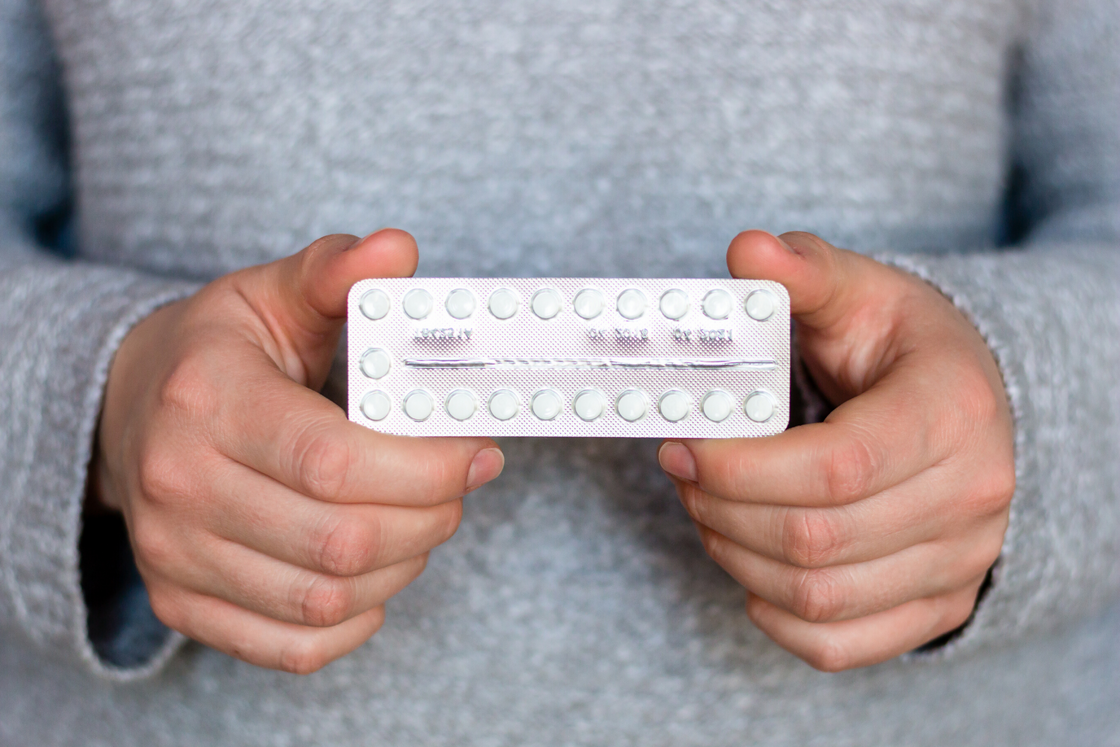It’s understandable to think that you may not need to be as vigilant with contraception as you approach the menopause but Food Scientist and Nutritionist Susie Debice reviews some of the risks and offers some sensible advice…
The menopause is the time it takes for your body to reach the end of your fertility phase of life. But when it comes to contraception – it’s not as black and white as some women would like it to be. You may think that as soon as you get your first sign of a hot flush or night sweat that you can toss your contraceptive pills and condoms to one side. However, this would be a mistake if you’re wanting to avoid any little fertility surprises in your late 40s or early 50s.
Late pregnancy risks
You see your fertility doesn’t end with the arrival of your first menopausal symptoms, in fact it can be several years – we’re talking 4-10 years – from the start of your menopausal symptoms to the actual end of your periods. This half to full decade is called the perimenopause and during this time you definitely need to keep on top of your contraception. Towards the end of your fertile years you are releasing the lowest quality and most aged eggs but that doesn’t mean that these eggs can’t get fertilised it just means that the genetic information they contain isn’t as pure or as high quality as the eggs that you released in your teens and 20s. This is why naturally conceived pregnancies in a woman’s 40s tend to have a much higher risk of complications for the mother and baby.
Unpredictable ovulation
As you progress through your perimenopause you are likely to go through phases where your periods are closer together and heavier than normal, or completely irregular, and finally they may become more spaced out or you skip a few and they may be much lighter than normal. These changes make it very hard to predict when you are ovulating, and changes in vaginal mucus which you may have previously used as an ovulation indication may also no longer be appropriate or accurate. So, the techniques used for avoiding pregnancy without the use of contraception are also becoming flawed.
Contraceptives and hormones
You may have come the end of a 5 or 10 year coil or implant and be questioning if there is any point in having a new one fitted if you are already showing signs of the perimenopause. This is a decision that you and your partner need to make together. Being hormone free leading up to the menopause has some advantages for some women for finding their own natural rhythm and embracing a more natural menopause. Or for other women carrying on with hormone-based contraception, be it a coil, implant or pill helps smooth over the symptoms they are experiencing. If you decide to come off your contraception then it is highly advisable to use a barrier method until the menopause is complete. If you choose to go the natural route then remember that if your symptoms start to escalate and the normal lifestyle, diet and supplement recommendation for the menopause doesn’t give you enough relief, then you can always choose to talk to your GP about starting BHRT (bioidentical hormone replacement therapy) or HRT (traditional hormone replacement therapy) to help you better manage your symptoms.
No contraception needed
I expect you are wondering when can you stop using contraception? Well, you are officially through the menopause once you are symptom free and your periods are ceased for 12 months (if you are over 50 years old) or 24 months (if you are younger than 50). It’s at this point you could be confident that your fertility has ended, and you would no longer need contraception. Unfortunately, some of the symptoms of the menopause include low libido, vaginal dryness and painful intercourse which may put a dampener on your love life. Talking about these things with your partner and using natural lubricants may help to keep your intimacy alive.



